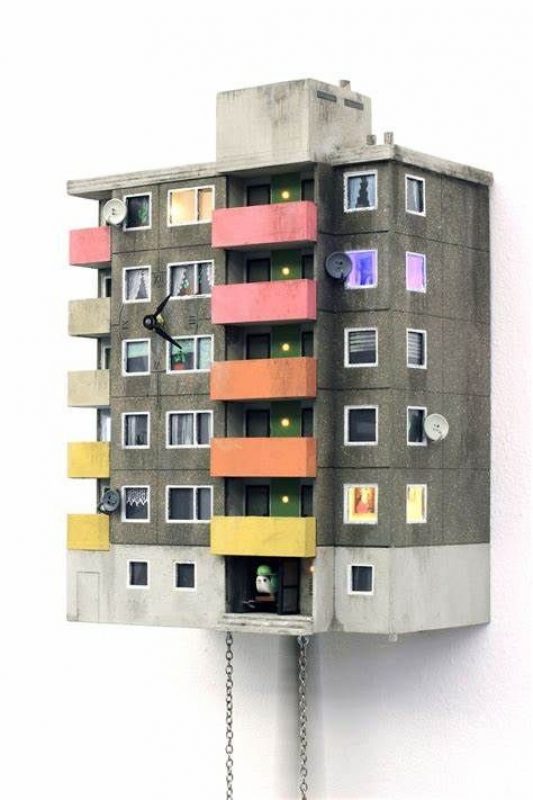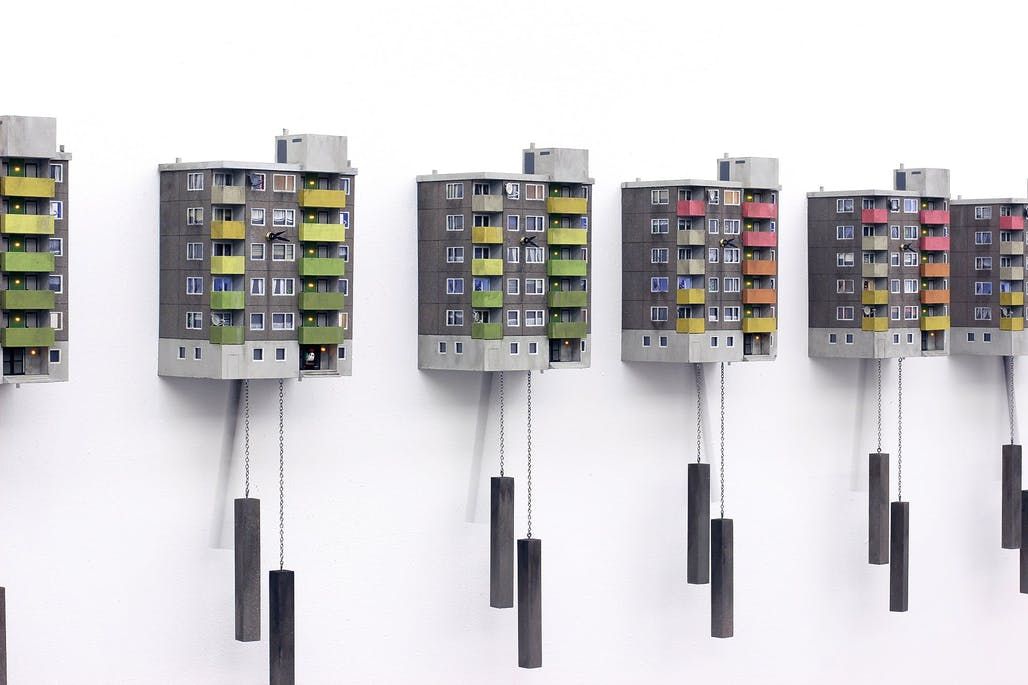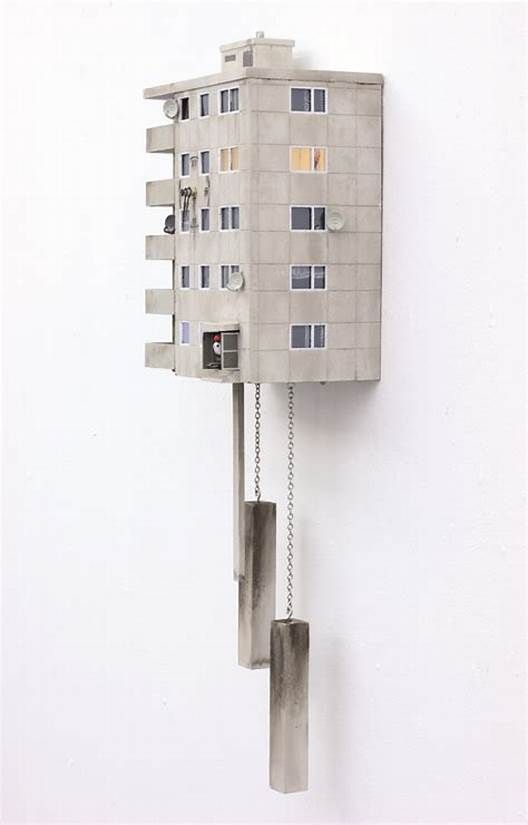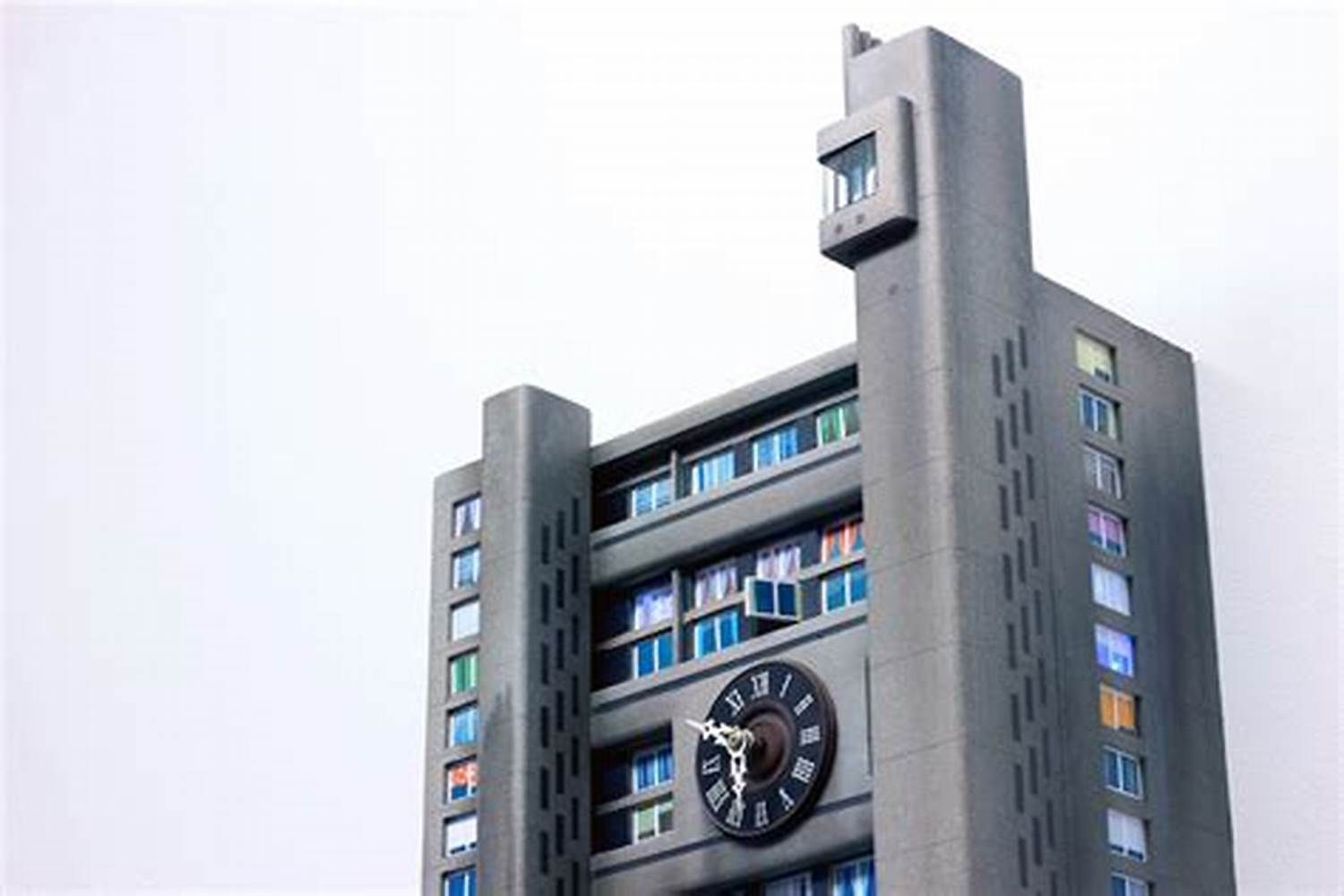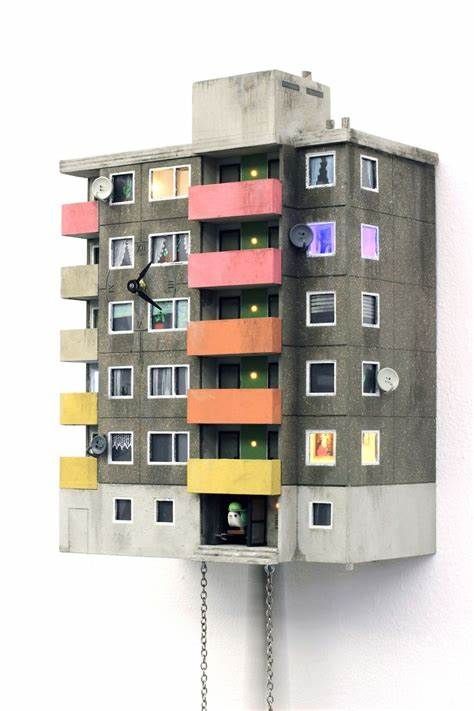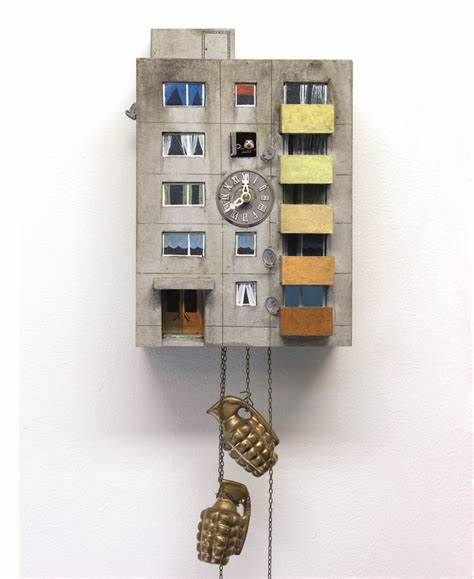Brutalist architecture sprouted up landmarks following the Second World War, that still dominate cities in Europe. They divide the opinion without any mercy, pitting the ones who condemn them as eyesores and those who praise their designs.
There are many designers and creative professionals across the world who are using brutalist architecture as a source of inspiration. They are updating the old designs to match with the modern age. They’re making their own statement on nostalgia, renewal, and innovation, with Brutalist architecture as the driving force behind them. Their Brutalism-inspired products range from trendy Russian flower vases and nostalgic Slovak pre-fab furniture to German housing cuckoo clocks, Modernist Belgrade map, Polish Polaroid photo projects, and miniature tower block building kits.
See also:
Architectural Brutalist Illustrations | Xinran Ma
Epic Starwars Architecture in the Heart of Belgrade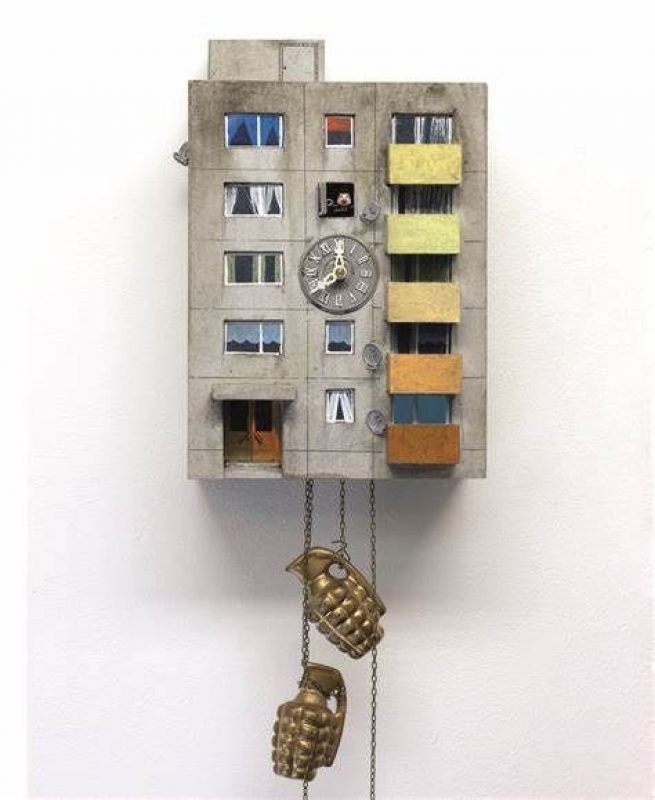
Brutalist Architecture As a Source of Inspiration:
Blue Crow Media
Blue Crow Media design maps to guide architecture enthusiasts between architectural landmarks. It began with a guide to Brutalist London, in 2015. Now it has over 16 different architecture and design maps. Most of them, however, focus on Modernism, Constructivism, and Brutalism in East Europe. Stating that he has always been a fan of Brutalist architecture, Derek Lamberton, says, “They’re not something that should be written off because they’re concrete or social housing.”
Guido Zimmerman
Zimmerman fuses social housing with the traditional Germany Cuckoo Clock, creating the Cuckoo Block. The Block-shaped clocks portray the simple elegance of post-war city homes. Zimmerman combines the past and present in his clocks by utilizing a new outer cover while maintaining the old soul and craftsmanship. “I think that the beautiful examples of Brutalism will never lose their spirit,” says Guido. “But while Glenkerry House by Ernő Goldfinger once offered accommodation for average citizens, for example, now it offers “hip” and hardly-affordable living.”
Katia Tolstykh
Katia Tolstykh, an artist from St. Petersburg, Russia, draws inspiration for her vases from the buildings that surround her. The geometric lines of the Brutalist structures and the park furniture can be seen in the unfinished surfaces and conventional forms of her MEME vases. The pastel hues bring in a softer side to the Brutalist inspired vases.“Brutalism is a big inspiration for me. It is a unique style born out of the fusion of cultural protest and a harsh urban need. Post-war Europe was in dire need of rebuilding: reinforced concrete was ideal for these purposes,” says Tolstykh. Tolstykh believes that Brutalism draws artists towards it for numerous reasons, one of which is the need to express themselves. Brutalism’s heavy and hard forms are seen by artists and designers as spirit-captivating.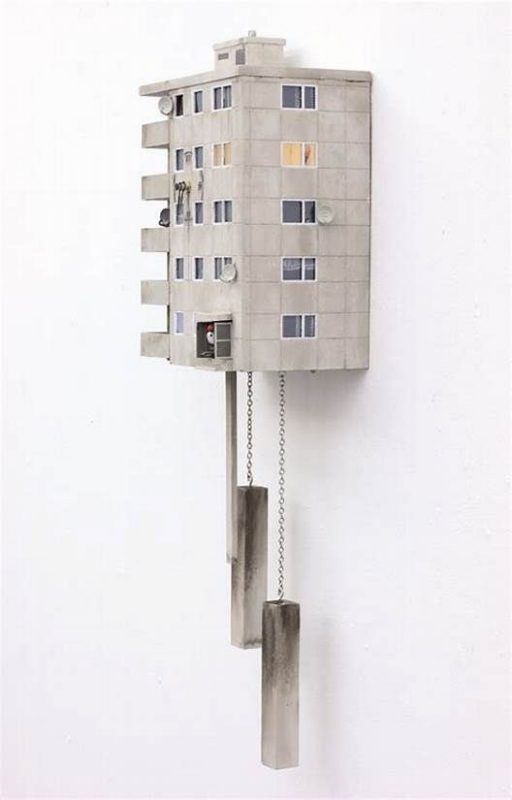
Marián Laššák
To Marián Laššák, Brutalism’s boxy pre-fab towers are far from problematic. On the contrary, those towers that sprung up in Czechoslovakia after the Second World War are actually a source of inspiration to the Slovak artist. He perceives them as a significant part of the country’s history and image. His Panelák furniture has a sense of playfulness with its peek-through windows and lights.
“We’re always looking back and taking inspiration from old products and how they were made. Even though they were created under communism, they are still inspirational because of their modernity,” says Laššák. Laššák understands that by the time of revolution the tower blocks had become a symbol of bad housing. He believes, however, that they have come to shed that reputation. Insulated and repainted, they provide a decent living environment now.
Zupagrafika
Polish artist Martyna Sobecka and Spanish graphic designer David Navarro have captured the hearts of people all around with these paper recreations of Brutalist architecture. Their works are inspired by raw concrete buildings from New York, London, and Berlin; however, their greatest source of inspiration is the Polish city of Poznań. The pair believe that their recreations will help others see Brutalist architecture as a form of expression. “There are things that surround us on a daily basis that seem to be invisible to us,” says Martyna. “Tower blocks, concrete modernist estates: we take them for granted. We think they are unattractive and not worth our attention. With our graphic work, we have been trying to showcase this kind of architecture from a different perspective.” Sobecka and Navarro have also worked on the Hidden cities project, where Polaroids are peeled away to reveal snowy cityscapes of the beautiful yet forgotten Eastern Bloc. “By peeling away the “negative” one learns to rediscover the beauty of the ordinary,” says Martyna.